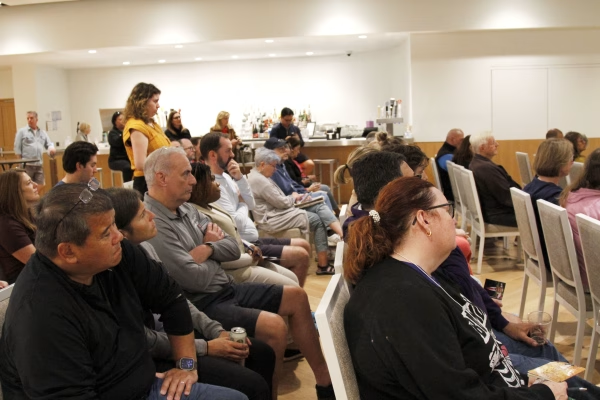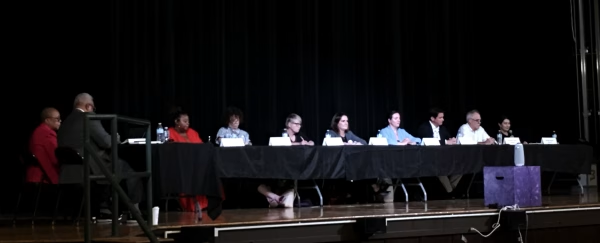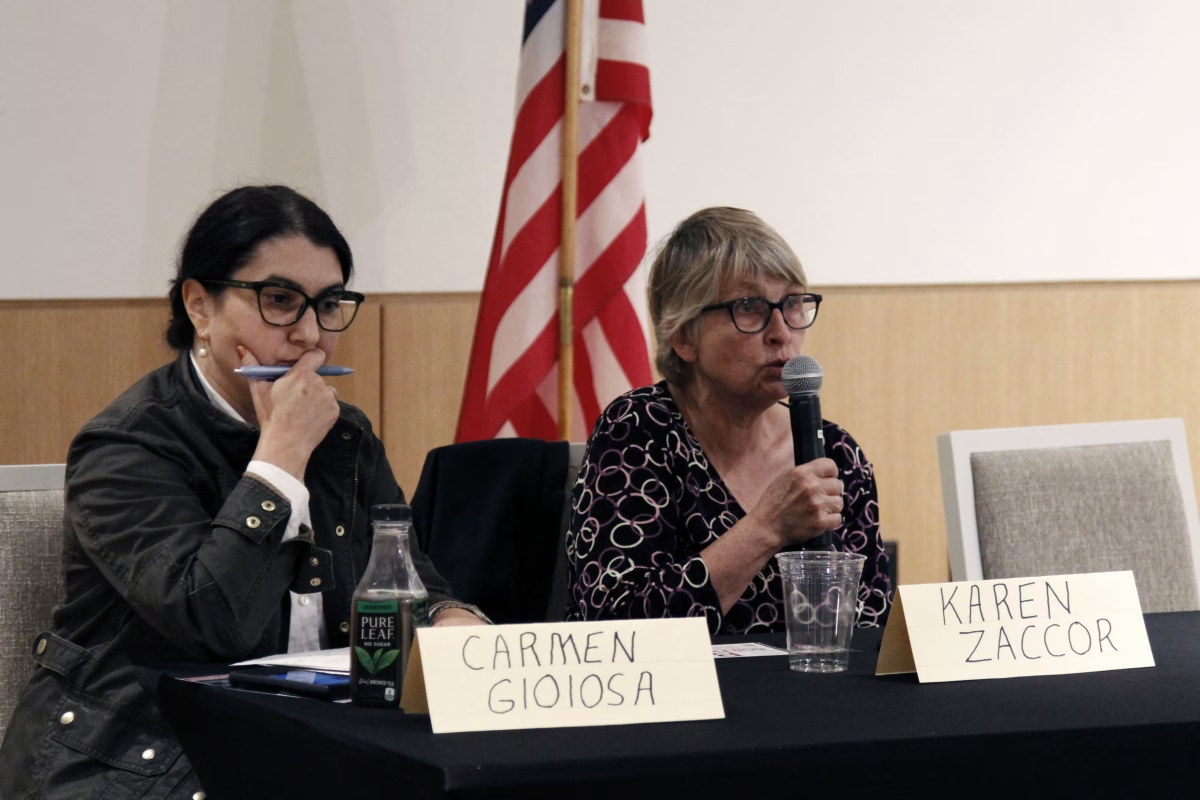Chicago’s first-ever election for a citywide school board is underway as several public-facing conflicts involving Mayor Brandon Johnson, Chicago Public Schools CEO Pedro Martinez, the Chicago Teachers Union and the Board of Education have recently made headlines.
In a Sept. 24 op-ed in the Chicago Tribune, Martinez said the mayor asked him to resign after the Board of Education unanimously passed its strategic five-year plan, but the CEO refused.
A week later, the Chicago Board of Education historically announced their resignations en masse in a joint statement with the mayor, potentially allowing Johnson to remove Martinez with a new board. A day after the resignations were announced, 41 of 50 aldermen signed a letter condemning the mayor’s handling of the board.
The disharmony has arisen from negotiations on how to fill Chicago Public Schools’ budget deficit. The mayor proposed in July to take out a short-term, high-interest loan to cover the gap, but his proposal was rejected by the Chicago Board of Education. Martinez recently warned that such a loan would further worsen CPS’ long-term financial standing at a City Council hearing on Oct. 16.
Some school board candidates shared conflicting views on the loan proposal and Mayor Johnson’s fiscal approach at an Oct. 5 forum at Lane Tech College Prep High School, hosted by advocacy group Raise Your Hand for Illinois Public Education.
“Pedro Martinez made the right call,” District 4 candidate Ellen Rosenfeld said, referencing the board’s rejection of the loan.
District 4 candidate Karen Zaccor, endorsed by the Chicago Teachers Union, was not immediately willing to say whether she approved of the loan.
“We need more information,” Zaccor said. “We should not get in the practice of being board members who take information from what we read in the newspaper and make decisions about what should happen.”
Zaccor said candidates should first “go through the data and hear from the experts” before making a decision. She went on to say it would be “inappropriate” for candidates to answer the question.
After Zaccor’s statement, District 4 candidate Kimberly Brown said “legitimate news sources should not be weaponized” and went on to disagree with the loan proposal.
“It’s not to say we’re not going to have all the information, but if someone asked me to vote right now on what the mayor wants to do, I disagree with his fiscal policies,” Brown said. “I disagree with a high-interest loan on a short-term solution to solve a union contract that is asking for a lot very very quickly, but we need a long-term financial plan.”

Audience members asked questions about various topics, including promoting sexual health education, creating more transparency between parents and teachers and supporting student voices.
Kathleen Hayes, this year’s elections program coordinator for Raise Your Hand, said it has been challenging to get Chicagoans engaged in the school board race given that it is so new.
Hayes also said she observed some misperceptions of the Board of Education’s responsibilities in questions from the forum’s audience.
“I think that a lot of people seem to misunderstand the role of the board and they’re asking questions that get into how teaching and learning happens in the classroom,” Hayes said. “And, while I think the board has room to influence that, you also have to consider the intersection of that with the Chicago Teachers Union and the fact that they evaluate teachers.”
On the flip side, forum attendee Carl Nyberg said he wanted to know how the candidates themselves perceive their prospective roles, including how much time they anticipate having to put into the board.
“My suspicion is that being on the school board is going to be such an enormous job, that people are either going to quit or they’re going to have significant diminishment in their quality of life,” Nyberg said. “They’re going to be pretty miserable.”
The Chicago Board of Education website describes board membership as “an extensive time commitment” that requires 25 to 30 or more hours of work per month. To prepare for board meetings, members also get briefings and “are required to read and analyze hundreds of pages of documents each month.” Board members are not paid.

To inform Chicagoans about the school board, Hayes said Raise Your Hand has released a podcast titled “From Selected to Elected: Unpacking the Chicago Board of Education.” The podcast will follow the school board election as well as the Board of Education’s monthly meetings starting in January.
After the forum, Brown said she is excited for the remainder of the race and said the candidacy of “regular people” has been a win for local politics.
“The fact that you have a significant amount of candidates up there that are regular parents running for this and getting this far along is amazing,” Brown said. “That’s how local democracy was always meant to work, that you should be able to run and do this and not have to raise a ton of money to be able to reach your community.”
Related Stories:
- Mayor Johnson backs decision to remove police from Chicago Public Schools
- Optimism and trust prevail between Chicago teachers and Mayor Brandon Johnson
- Mayor Johnson backs decision to remove police from Chicago Public Schools
Support Student Journalism!
The DePaulia is DePaul University’s award-winning, editorially independent student newspaper. Since 1923, student journalists have produced high-quality, on-the-ground reporting that informs our campus and city.
We rely on reader support to keep doing what we do. Donations are tax deductible through DePaul's giving page.


